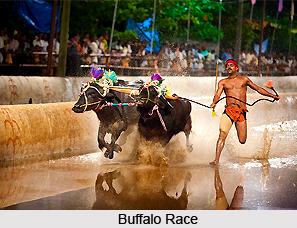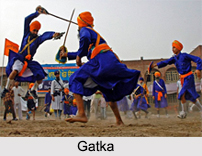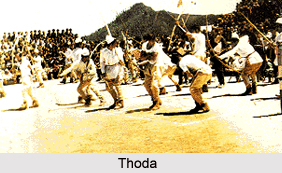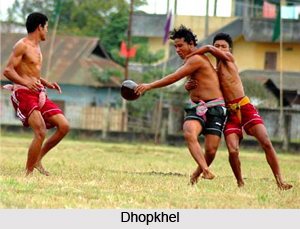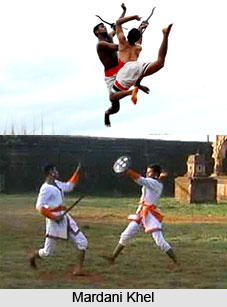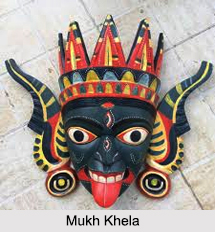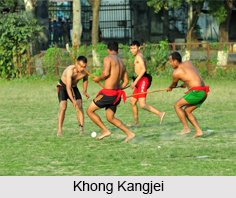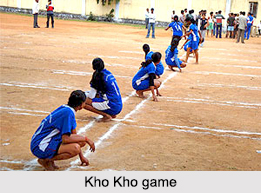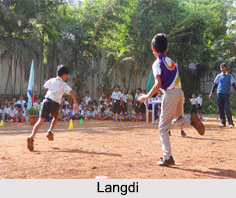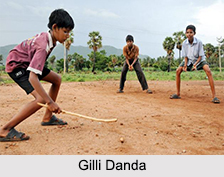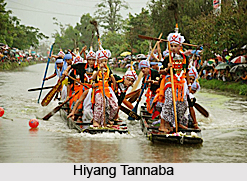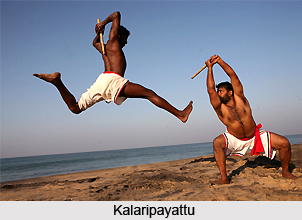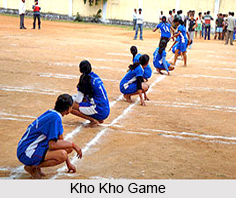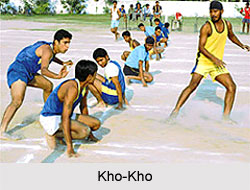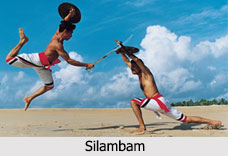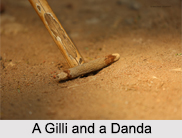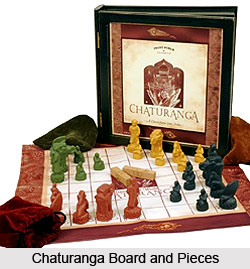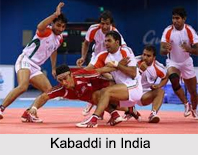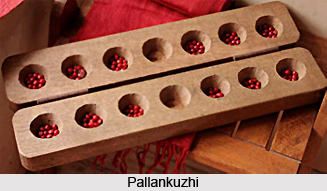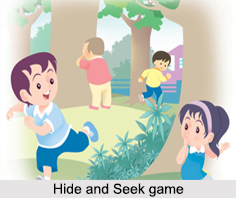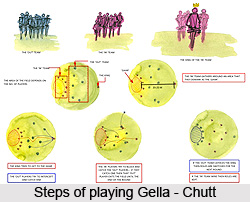 Gella - Chutt is a famous indigenous game of Tripura state of India. It is also played in other states of India. Interestingly, the number of participating in a game of Gella - Chutt differs in the various places the game is played. Also there is no rigidity as far as the dimension of the area to be played is concerned.
Gella - Chutt is a famous indigenous game of Tripura state of India. It is also played in other states of India. Interestingly, the number of participating in a game of Gella - Chutt differs in the various places the game is played. Also there is no rigidity as far as the dimension of the area to be played is concerned.
Rules of Gella - Chutt
There are no hard and fast rules of the game. The game consists of two groups - out-group and in-group. Number of players in each group can be around 10-12. Players from the in-group nominate one among them as the king.
This player (the king) is then positioned at a distance of 20 to 25 metres from his other team members who are restricted to a particular area which is called `ghar` or the house. Now the aim of the king is to reach the ghar where his other team members are present. But the obstacle comes in the form of players from the out-group who spread over the entire area in an attempt to stop the king from making it to the ghar. The king has to ensure that he reaches the ghar without touching any member of the out-group.
The game starts when players from the in-group run one by one shouting `kut, kut` or any other word. The in-group players have a very important part to play in aiding the king to reach home safely. They have to try and touch the players from the out-group. Once an out-group player is touched, he is declared dead and takes no further part in the game. For this, the in-group players form a human chain. The procedure of the king leaving his room for the house is called Gella - chutt, which translates to `the king ran away`. As soon as the king moves out of his room, the out- players rush to touch him. If they are successful, the king is declared dead. The game continues afterwards with groups exchange roles.
Benefits of Gella - Chutt
The benefits of playing this traditional sport are many. The game is designed in such a way that it helps players to develop their running speed, logical thinking, building strategy and also concentration.
